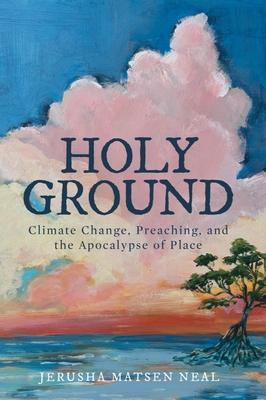The climate crisis' most difficult questions are not technological but relational. Environmental catastrophe reveals a world increasingly divided and inextricably linked, pressing questions of place. How do the places in which we stand relate to the places of others? What are the limits of our belonging and our power? To whom are we responsible, and what does that accountability require?
In Holy Ground, Jerusha Matsen Neal centers the sermons of displaced, Indigenous communities in the South Pacific and the proclamation of the displaced prophet Ezekiel to expose colonial specters in the contemporary environmental movement and the North American pulpit. Communities that have loved and lost land carry hard-fought wisdom about the renunciation of false hopes and false gods. Such wisdom crucially orients climate justice preaching in an unraveling world. Naming broken pasts and uncertain futures, the sermons this volume engages take seriously the question seared into the heart of the biblical text: can the creation and covenant of a good God come undone? The scriptural witness forecloses simple answers to that theological crisis, as do the contemporary witnesses of those who stand in rising tides. Instead, such witnesses call listeners to costly acts of repentance and covenantal solidarity, reclaiming preaching's role in the climate fight.
Written for scholars and clergy alike, Holy Ground constructs a practical theology of place that equips preachers from various contexts to proclaim God's Word in the face of climate catastrophe. Attuned to place's revelatory testimony, preaching becomes more than a persuasive technology. It becomes a site of divine encounter, relinquished control, and reclaimed relationship, unveiling the place of apocalypse as holy ground.
